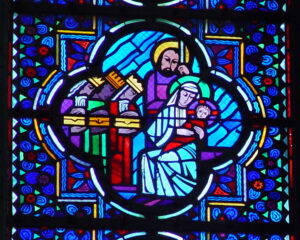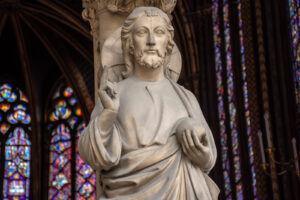
Dear friends in Christ,
This coming Sunday, we will hear from St. Paul’s first letter to the church in Corinth. He writes, “For in the one Spirit we were all baptized into one body…” He goes on to talk about unity in diversity in the body of Christ. His teaching suggests that the church needs all of us in our diversity.
But how do we make that happen? Or, more accurately, how do we enjoy the gift of God making it happen?
The Gospel on Sunday reminds us of one of the foundational practices of manifesting the body of Christ. “When [Jesus] came to Nazareth, where he had been brought up, he went to the synagogue on the sabbath day, as was his custom.”
I’ve heard people say things like, “God doesn’t care if we go to church.” Nothing could be further from the truth. If we say we follow Jesus, we should pattern our lives after his example. Jesus went to the synagogue week by week. He kept the fasts and feasts. Praying in community matters to our Lord.
The letter to the Hebrews make this explicit for us: “And let us consider how to provoke one another to love and good deeds, not neglecting to meet together, as is the habit of some, but encouraging one another, and all the more as you see the Day approaching” (Heb 10:24-25).
So there are lots of reasons why going to church matters:
- It helps us pattern our lives after our Lord and Savior
- Church allows us to meet Jesus in the sacraments and to hear the great stories of God’s love for us in the scriptures
- We can provoke one another to love and good deeds—and be provoked ourselves
- We can offer our thanks and praise to Almighty God
This is a timely reminder. The news cycles invite us into a cycle of fear and dread. But we who follow Jesus are meant to manifest his light and his hope for the world. So we do well to put news cycles in the context of salvation history. And we do that at church.
So, this Sunday, I encourage you to go to church. Ever better, invite someone to go along with you, or gently nudge a fellow Christian who hasn’t been in a while.
Going to church matters to us, and it matters to God.
Yours faithfully,

Scott Gunn
Executive Director
More from our ministry:
Get your Lent and Easter calendars today!
Start planning your Lent Madness bracket with this poster
Connecting baptism to evangelism: Will You?
Travel the way of Jesus this Lent: The Disciple’s Way












